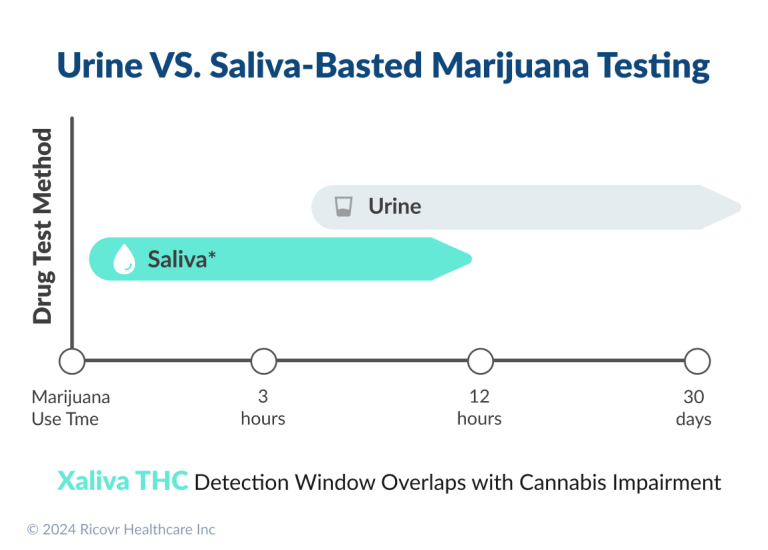A: It is crucial for employers and TPAs to stay current on the science and latest drug testing technology. Urine tests detect past use, and if your team wants to detect historic marijuana use, then be sure that your team knows this. There are two main issues with the urine-based marijuana drug tests:
- Adulteration refers to an individual cheating on a urine test. Most urine tests require privacy where the donor is unsupervised in the bathroom, while providing a urine sample allows for potential cheating. Fake urine is available for purchase or taken from someone else to pass the test. According to the Quest 2023 DTI report, the increase in substituted urine specimens in the general U.S. workforce, a population of over 5.5 million, increased by 633% (0.015% in 2022 versus 0.11% in 2023) or more than six times over one year from 2022 to 2023. Invalid urine specimens in the general U.S. workforce increased by 45.2% (0.31% in 2022 versus 0.45% in 2023).

- The length of detection time for urine is well past the cannabis impairment window. This refers to the amount of time that marijuana is detected in urine and can range from a few days up to 30 days for cannabis. The window of impairment, on the other hand, refers to the length of time the psychoactive properties of cannabis affect the user and create a “high.” A comprehensive review of all impairment studies from Neuroscience Behavioral Reviews suggests that cannabis impairment can last 3 to 10 hours, making the urine test detect past use, not recent use (2).
Sources:
-
Workforce Drug Test Cheating Surged in 2023, Finds Quest Diagnostics Drug Testing Index Analysis of Nearly 10 Million Drug Tests. Quest Diagnostics, May 15th Link.
-
Danielle McCartney, Thomas R. Arkell, Christopher Irwin, Iain S. McGregor, Determining the magnitude and duration of acute Δ9-tetrahydrocannabinol (Δ9-THC)-induced driving and cognitive impairment: A systematic and meta-analytic review, Neuroscience & Biobehavioral Reviews, Volume 126, 2021:175 193. Link
